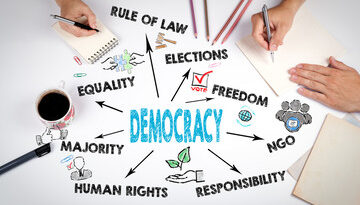Exploration of minority campaigns and cultural diversity in the United States of America
By Imanche Sunday, April 9th, 2024
Centuries of immigration from all over the world have produced a great deal of cultural diversity within the United States of America. This diversity has earned the country a well-deserved reputation. A melting pot of diversity, the country is home to a broad variety of cultures, traditions, languages, and faiths, making it a melting pot of diversity.
The United States of America is home to a diverse array of cultures that have contributed to the formation of its distinctive identity. These cultures range from Native American tribes to European settlers, from African slaves to Latin American immigrants, from Asian communities to refugees from the Middle East. This diversity is recognized across the country through a variety of cultural institutions, as well as through arts, music, food, and festivals that promote different cultures.
Even though the United States of America has made strides toward embracing cultural diversity, there are still obstacles to overcome, such as prejudice, racism, and inequality. Individuals and communities need to continue to work toward fostering an awareness, acceptance, and appreciation of the various cultures that are woven into the fabric of American society. For the United States of America to continue to flourish as a multicultural nation, education, dialogue, and mutual respect are all necessary components.
The contributions of minority groups have a significant impact on the cultural diversity of the United States. These individuals contribute distinctive points of view, practices, dialects, and traditions that contribute to the general enrichment of the country’s cultural landscape. The existence of minority communities in the United States contributes to the diversity that exists in the fields of music, art, literature, gastronomy, and fashion. As an additional benefit, they contribute to the dismantling of preconceptions and the promotion of understanding and respect for various cultures. To cultivate a society that is more accepting of people of all backgrounds and more interconnected, it is vital to acknowledge and celebrate cultural variety, including the contributions made by minority groups.
As a varied nation, the United States of America provides opportunities for people from all walks of life to flourish and achieve their full potential. There are still obstacles and hurdles that minorities may encounter; however, there are also resources, support systems, and programs that are in place to assist in the promotion of diversity, inclusivity, and equality. The fact that numerous minority communities and individuals have made important contributions and accomplishments in a variety of professions demonstrates that there is, in fact, a place for them to flourish in the United States of America.
The United States of America has several laws that are designed to safeguard the rights of various minority groups. Acts such as the Civil Rights Act of 1964, the Voting Rights Act of 1965, the Americans with Disabilities Act, and the Fair Housing Act are examples of pieces of legislation that fall within this category. These rules intend to prevent discrimination and ensure that all individuals, regardless of their race, ethnicity, religion, gender, or disability status, are afforded equal opportunity.



Minority groups have made major contributions to the cultural variety of the United States. The unique perspectives, customs, accents, and behaviors that these people bring to the nation’s cultural environment generally enhance it. The diversity found in music, art, literature, gastronomy, and fashion is influenced by the presence of minority communities in the United States. They also help to destroy stereotypes and advance tolerance and understanding of different cultures, which is an added bonus. Acknowledging and celebrating cultural differences, particularly the contributions of minority groups, is essential to building a more linked and welcoming society for people from all backgrounds.